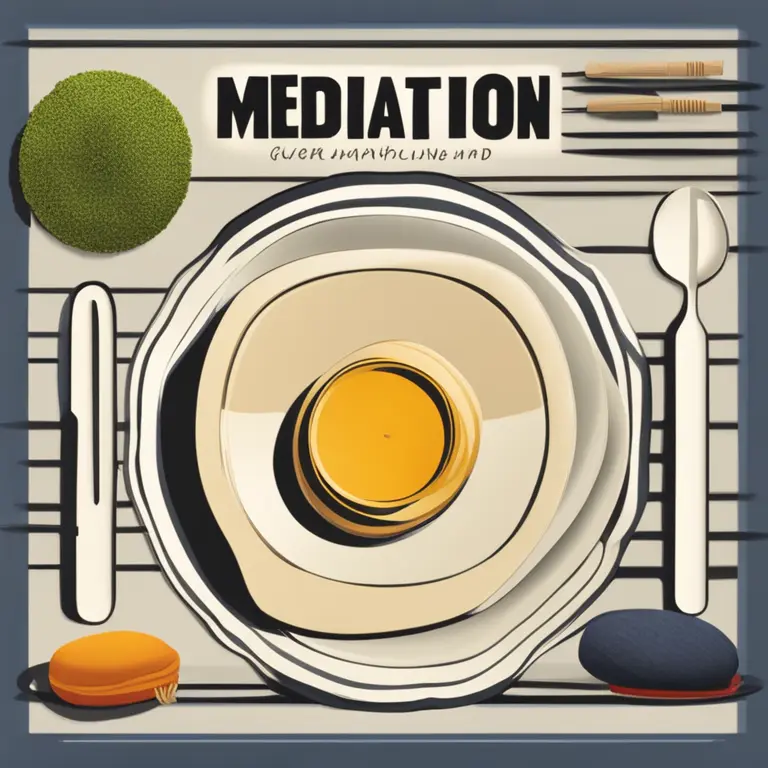
The Intricacies of Meditation and Mindfulness
Discover the dynamic relationship between meditation and mindfulness and their roles in achieving a balanced lifestyle.
article by Hina Kurosawa
The Essence of Meditation
Meditation is an ancient practice that transcends cultural and spiritual boundaries. Its essence lies in fostering a deep state of relaxation and a tranquil mind. Over time, techniques have evolved, but they consistently aim to enhance self-awareness and induce a sense of peace. In the contemporary wellness landscape, meditation remains a cornerstone for those seeking solace from the frenetic pace of modern life. Its adaptability allows practitioners to integrate meditation into their daily routine, regardless of their personal or professional demands.

Mindfulness: A Modern Adaptation
Mindfulness, while intertwined with meditation, is best described as a heightened state of awareness and presence in the moment. This practice encourages individuals to observe their thoughts and feelings without judgment. Modern mindfulness has emerged as a popular approach to life that counters the often automatic, distracted mindsets brought about by technology and constant connectivity. Through regular practice, mindfulness can improve focus, reduce stress, and increase emotional regulation, contributing to overall well-being.

Distinctions Between Two Practices
While both meditation and mindfulness operate within the mental and emotional realms, distinctions between the two are sometimes blurred. Meditation is typically characterized by a structured period of practice, where one might engage in techniques such as focused attention, visualization, or mantra repetition. Conversely, mindfulness can be practiced at any moment throughout the day, woven seamlessly into activities such as eating, walking, or even conversing. The key differentiation is the formal vs. informal nature of each method and their applications in daily living.

The Convergence for Holistic Health
In the pursuit of holistic health, meditation and mindfulness converge, complementing each other to form a comprehensive approach to mental fitness. Wellness experts in 2024 emphasize the importance of both disciplines as essential components of a balanced lifestyle. As scientific studies continue to back the health benefits of these practices, societal attitudes shift towards a greater acceptance of their roles in preventive healthcare. Individuals are recommended to incorporate aspects of both practices to enhance their resilience against the pressures of modernity.

Integrating Meditation and Mindfulness
Integration of meditation and mindfulness into one's routine has been streamlined by the proliferation of digital wellness apps and virtual platforms. Utilizing these resources can help newcomers and experienced practitioners alike maintain consistency and explore various styles. Through guided sessions, individuals can gradually build their meditation practice whilst interspersing mindfulness exercises into their day. This adaptive quality ensures that both practices remain relevant and accessible in an ever-evolving world.
Cultivating a Personal Journey
The intersection of meditation and mindfulness is deeply personal. Each individual may favor one practice over the other or may derive unique benefits from each. Self-exploration is a critical element in discovering what works best for an individual's psychological and emotional constitution. A personal journey into these practices may lead to profound insights and transformations that resonate at both the individual and collective levels, fostering communities centered around mindful living.
Published: 1/18/2024
Modified: 1/18/2024
More predictions
Come back here soon to learn more about yourself and your future


Easing Anxiety Through Mindful Meditation
Discover how mindful meditation can be a serene gateway to relieving anxiety, fostering a peaceful mind, and promoting overall well-being.


Can Meditation Impact On Depression?
Meditation can be a powerful tool for mental health. Discover whether incorporating a meditation practice can alleviate depressive symptoms.


Best Meditation Techniques for Brain Health
Discover effective meditation practices to enhance cognitive functions and maintain a healthy brain.